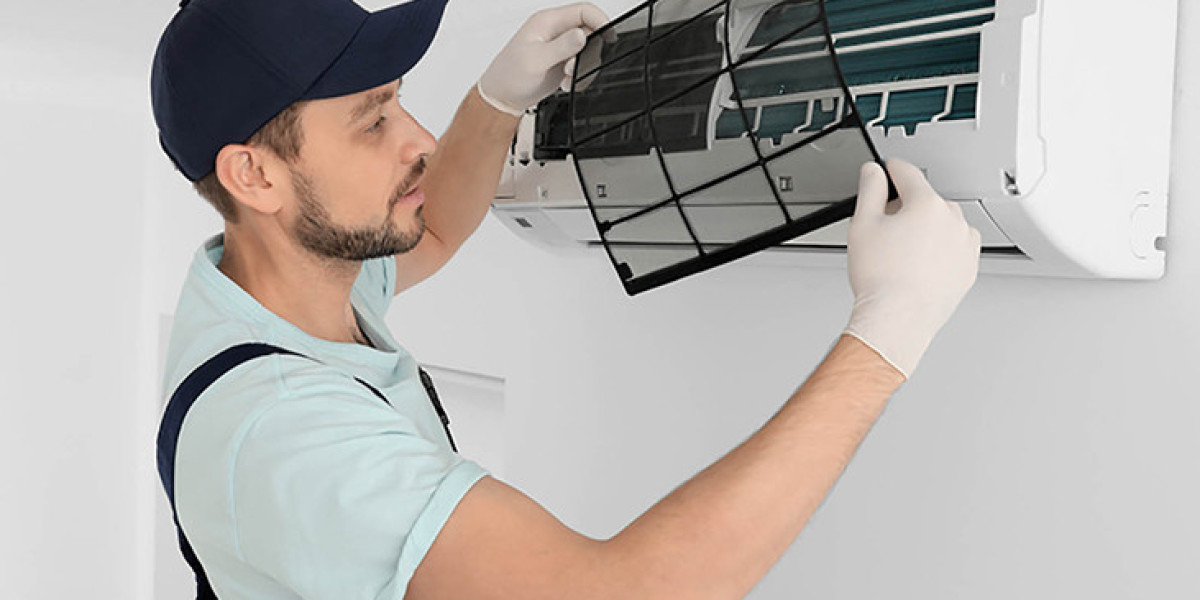In the ever-evolving landscape of industrial operations, the integration of effective HVAC (Heating, Ventilation and Air Conditioning) systems has become more than just a comfort-based solution—it is a fundamental pillar of operational integrity, equipment protection, and workplace safety. For industrial businesses where environmental precision is paramount, investing in the right HVAC system can mean the difference between costly downtime and seamless productivity.
This blog delves into how industrial HVAC systems play a crucial role in safeguarding expensive machinery and enhancing worker safety, especially when installed and maintained by trusted professionals.
Understanding Industrial HVAC Systems
Definition and Core Components
An industrial HVAC system is a sophisticated infrastructure that regulates temperature, ventilation, and air quality within large-scale operational facilities. Unlike basic residential systems, industrial HVAC setups are designed to handle significant loads, dynamic temperature ranges, and continuous usage across expansive floor spaces.
These systems typically comprise:
- Air handlers and chillers
- Boilers and furnaces
- Ventilation ducts and air filters
- Sensors and control systems for real-time monitoring
Distinction from Residential HVAC Systems
What sets industrial HVAC apart is its scale and functionality. Residential systems are designed for comfort, while industrial systems prioritise performance consistency and environmental control for both people and equipment. These setups are often custom-engineered and must adhere to stringent safety, regulatory, and environmental standards.

Equipment Protection through Precise Climate Control
Sensitive Machinery and Temperature Sensitivity
Many industrial processes rely on machines that perform within tight temperature margins. Deviations in climate—even slight fluctuations—can result in:
- Misalignment of components
- Irregular performance outputs
- Premature system failure
By maintaining a stable ambient environment, industrial HVAC systems help prolong the life of sensitive machinery and reduce breakdown incidents.
Humidity and Corrosion Prevention
Humidity is a hidden adversary in manufacturing environments. It accelerates corrosion, damages electrical circuits, and contributes to mould growth. High humidity is particularly hazardous in environments where metals, electronics, or composite materials are present.
A well-functioning HVAC system includes dehumidifiers and moisture-balancing controls that protect machinery from rust, oxidation, and moisture-triggered faults.
Clean Air for Dust-Free Operations
Industrial spaces, particularly in fabrication and production sectors, are hotspots for airborne particulates. If left unaddressed, these particles can infiltrate equipment, causing:
- Overheating
- Sensor malfunction
- Abrasive wear
Modern HVAC systems feature high-efficiency particulate air (HEPA) filters and multi-layered air purification technologies that help in maintaining a dust-free environment—critical for the longevity of your equipment.
Enhancing Workplace and Operational Safety
Ventilation and Removal of Contaminants
In many industrial environments, hazardous gases, chemical vapours, or fumes are part of the daily workflow. Without proper air exchange, these contaminants can accumulate to dangerous levels, endangering workers and violating safety laws.
Industrial HVAC systems are engineered to:
- Ensure proper air turnover
- Dilute and extract hazardous pollutants
- Support oxygen balance for confined spaces
This ventilation function not only protects staff but also helps facilities remain OSHA-compliant.
Managing Heat Stress in Workers
Workforce safety is a paramount concern, especially in facilities with high heat loads from machinery. Prolonged exposure to elevated temperatures can result in:
- Reduced concentration
- Fatigue and dehydration
- Heatstroke and other health risks
By maintaining ambient temperatures within healthy limits, HVAC systems help prevent such issues. This improves overall worker productivity and reduces the incidence of heat-related illness.
Preventing Accidents Through Climate Consistency
Thermal variation can also compromise operational safety. For instance:
- Condensation from sudden cooling can lead to electrical short circuits
- Overheating can result in material instability or fire hazards
- Poor ventilation can increase explosion risks in flammable environments
These threats can be significantly mitigated by consistent climate management through automated HVAC systems.
Compliance with Industry Standards and Safety Regulations
Legal HVAC Safety Requirements
UK industrial environments are subject to a host of environmental and workplace safety regulations. This includes indoor air quality thresholds, exposure limits for airborne contaminants, and temperature control for worker welfare.
A professionally installed HVAC system ensures compliance with:
- The Workplace (Health, Safety and Welfare) Regulations
- COSHH (Control of Substances Hazardous to Health)
- Building and Energy Efficiency Codes
These legal benchmarks are not just checkboxes—they’re essential for avoiding penalties and ensuring staff well-being.
Monitoring and Automation for Safer Operations
Smart industrial HVAC systems come equipped with:
- IoT-enabled controls
- Emissions sensors
- Real-time alerts for anomalies
This automation allows for faster issue detection and correction. If air quality dips or temperature spikes occur, the system reacts instantly—either adjusting airflow or alerting maintenance teams. This proactive approach greatly enhances safety.
The Role of Preventative Maintenance
Scheduled Servicing and System Integrity
A highly efficient HVAC system can still become a liability if neglected. Regular preventative maintenance is critical for:
- Preserving energy efficiency
- Avoiding emergency failures
- Extending system lifespan
Maintenance routines should be scheduled periodically and executed by a qualified air conditioning company London specialists, ensuring compliance with manufacturer and safety guidelines.
Energy Efficiency and Cost Savings
Well-maintained HVAC systems not only operate more safely but also use less energy, resulting in lower operational costs. Leaky ducts, clogged filters, or faulty sensors often lead to unnecessary energy consumption and heightened risk of malfunction.
Maintenance Checklist Benefits:
- Sustains system efficiency
- Protects against moisture and debris damage
- Confirms clean air output
- Detects early warning signs before they escalate
- Verifies sensor accuracy and automated responses
All of these elements support the dual goal of safety and cost control.
Choosing the Right HVAC Partner
Experience in Industrial Environments
Industrial HVAC installations demand precision, planning, and expertise. General or domestic service providers often lack the industry-specific knowledge needed to engineer systems that balance airflow, load demands, and hazard mitigation.
Selecting an air conditioning company London with experience in industrial environments ensures:
- Regulatory compliance
- Site-specific engineering
- Safe, robust, and scalable installations
Certified Professionals and Installation Assurance
Installation done right the first time prevents future complications. HVAC professionals should be:
- F-Gas certified
- Trained in industrial safety standards
- Knowledgeable in zoning, load distribution, and control integration
These qualifications are vital for seamless and safe air conditioning installation London projects.
Installation Planning and Customisation
Each industrial facility has unique requirements based on:
- Heat load distribution
- Equipment layout
- Ventilation zoning
Therefore, custom HVAC system design and installation is not a luxury—it’s a necessity. Professionals should conduct detailed on-site assessments and work alongside engineers to map out an efficient system that aligns with your workflow and safety protocols.
Conclusion
In industrial settings, HVAC systems are no longer simply about maintaining comfort—they're indispensable for equipment protection, operational reliability, and worker safety. From regulating humidity to filtering harmful contaminants and maintaining temperature consistency, these systems play a key role in maintaining both machine integrity and human health.
Choosing the right professionals for air conditioning installation London is essential to ensure systems are installed correctly and maintained with precision.
For industries looking to future-proof their operations with high-performing HVAC solutions, Hamilton Air Conditioning Ltd offers the expertise and assurance needed to meet today’s rigorous standards.


